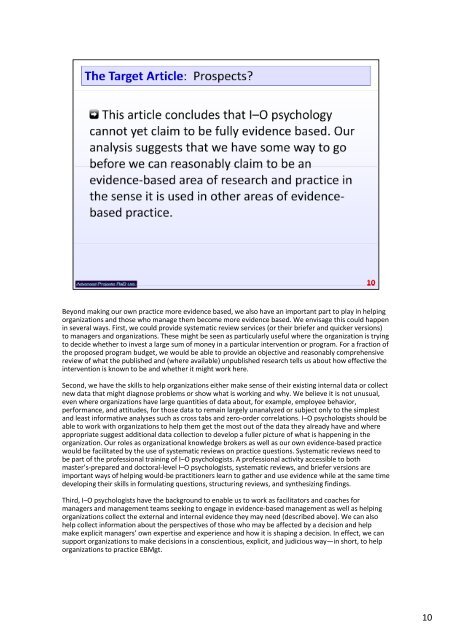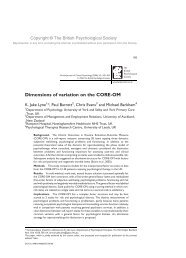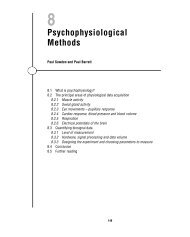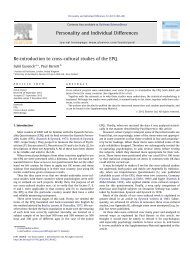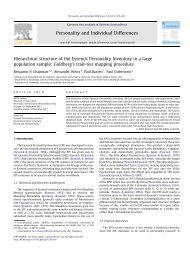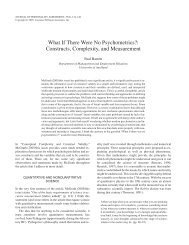Evidence-based IO psychology
Evidence-based IO psychology
Evidence-based IO psychology
You also want an ePaper? Increase the reach of your titles
YUMPU automatically turns print PDFs into web optimized ePapers that Google loves.
Beyond making our own practice more evidence <strong>based</strong>, we also have an important part to play in helping<br />
organizations and those who manage them become more evidence <strong>based</strong>. We envisage this could happen<br />
in several ways. First, we could provide systematic review services (or their briefer and quicker versions)<br />
to managers and organizations. These might be seen as particularly useful where the organization is trying<br />
to decide whether to invest a large sum of money in a particular intervention or program. For a fraction of<br />
the proposed program budget, we would be able to provide an objective and reasonably comprehensive<br />
review of what the published and (where available) unpublished research tells us about how effective the<br />
intervention is known to be and whether it might work here.<br />
Second, we have the skills to help organizations either make sense of their existing internal data or collect<br />
new data that might diagnose problems or show what is working and why. We believe it is not unusual,<br />
even where organizations have large quantities of data about, for example, employee behavior,<br />
performance, and attitudes, for those data to remain largely unanalyzed or subject only to the simplest<br />
and least informative analyses such as cross tabs and zero‐order correlations. I–O psychologists should be<br />
able to work with organizations to help them get the most out of the data they already have and where<br />
appropriate suggest additional data collection to develop a fuller picture of what is happening in the<br />
organization. Our roles as organizational knowledge brokers as well as our own evidence‐<strong>based</strong> practice<br />
would be facilitated by the use of systematic reviews on practice questions. Systematic reviews need to<br />
be part of the professional training of I–O psychologists. A professional activity accessible to both<br />
master’s‐prepared and doctoral‐level I–O psychologists, systematic reviews, and briefer versions are<br />
important ways of helping hl would‐be practitioners learn to gather and use evidence while hl at the same time<br />
developing their skills in formulating questions, structuring reviews, and synthesizing findings.<br />
Third, I–O psychologists have the background to enable us to work as facilitators and coaches for<br />
managers and management teams seeking to engage in evidence‐<strong>based</strong> management as well as helping<br />
organizations collect the external and internal evidence they may need (described above). We can also<br />
help collect information about the perspectives of those who may be affected by a decision and help<br />
make explicit managers’ own expertise and experience and how it is shaping a decision. In effect, we can<br />
support organizations to make decisions in a conscientious, explicit, and judicious way—in short, to help<br />
organizations to practice EBMgt.<br />
10


